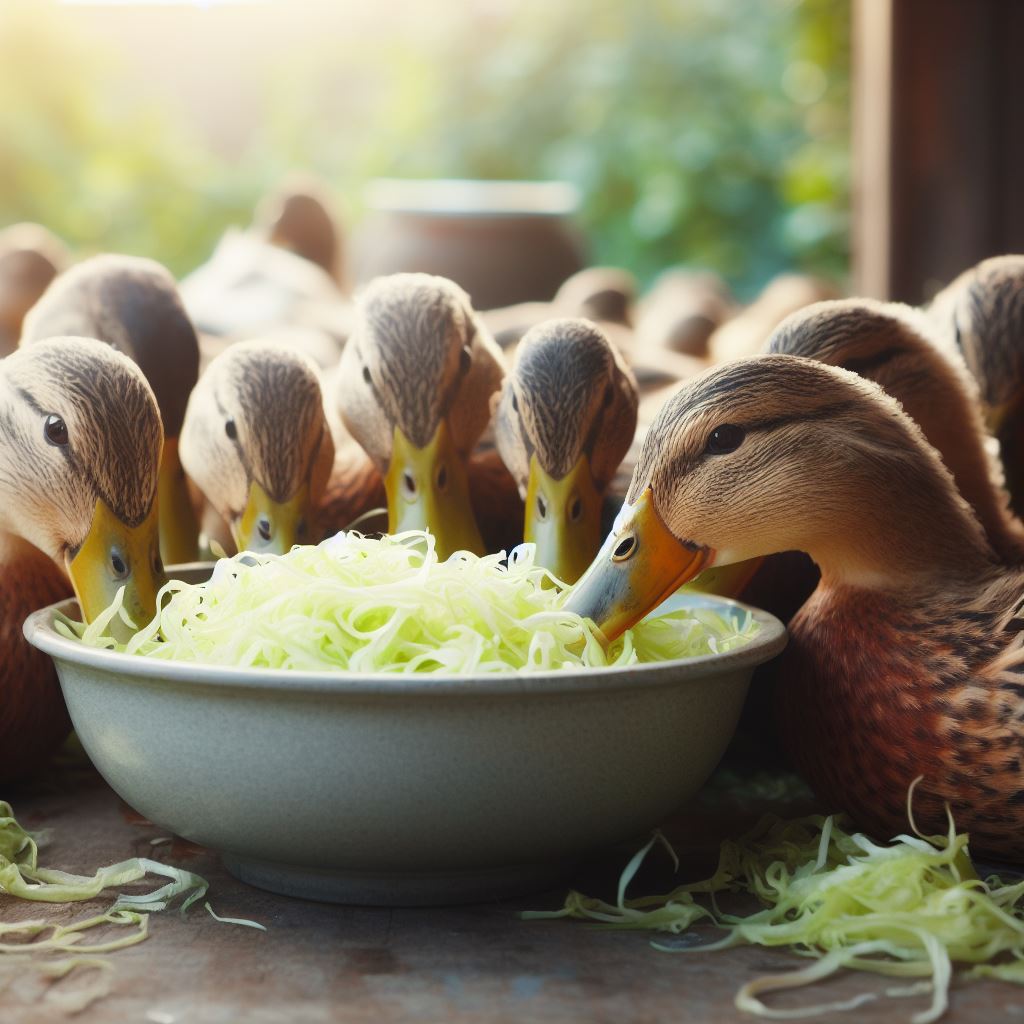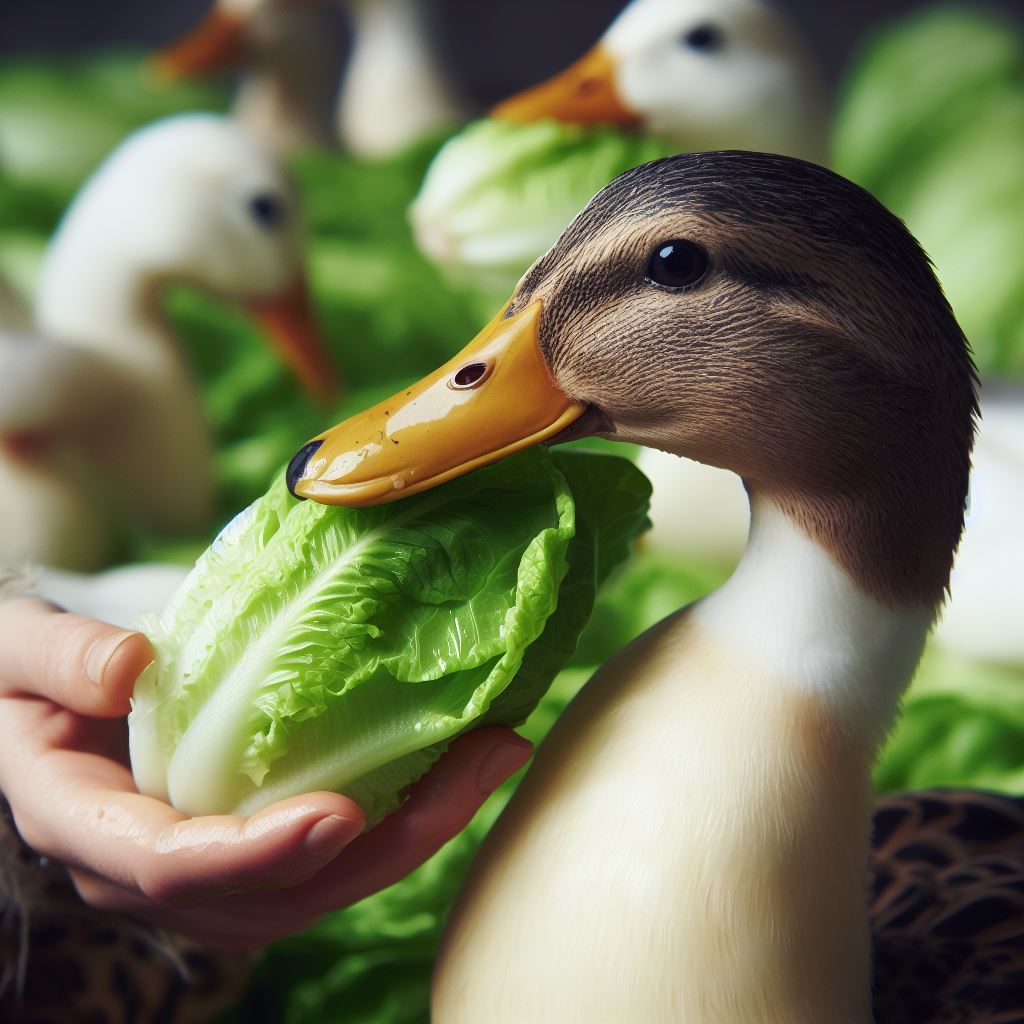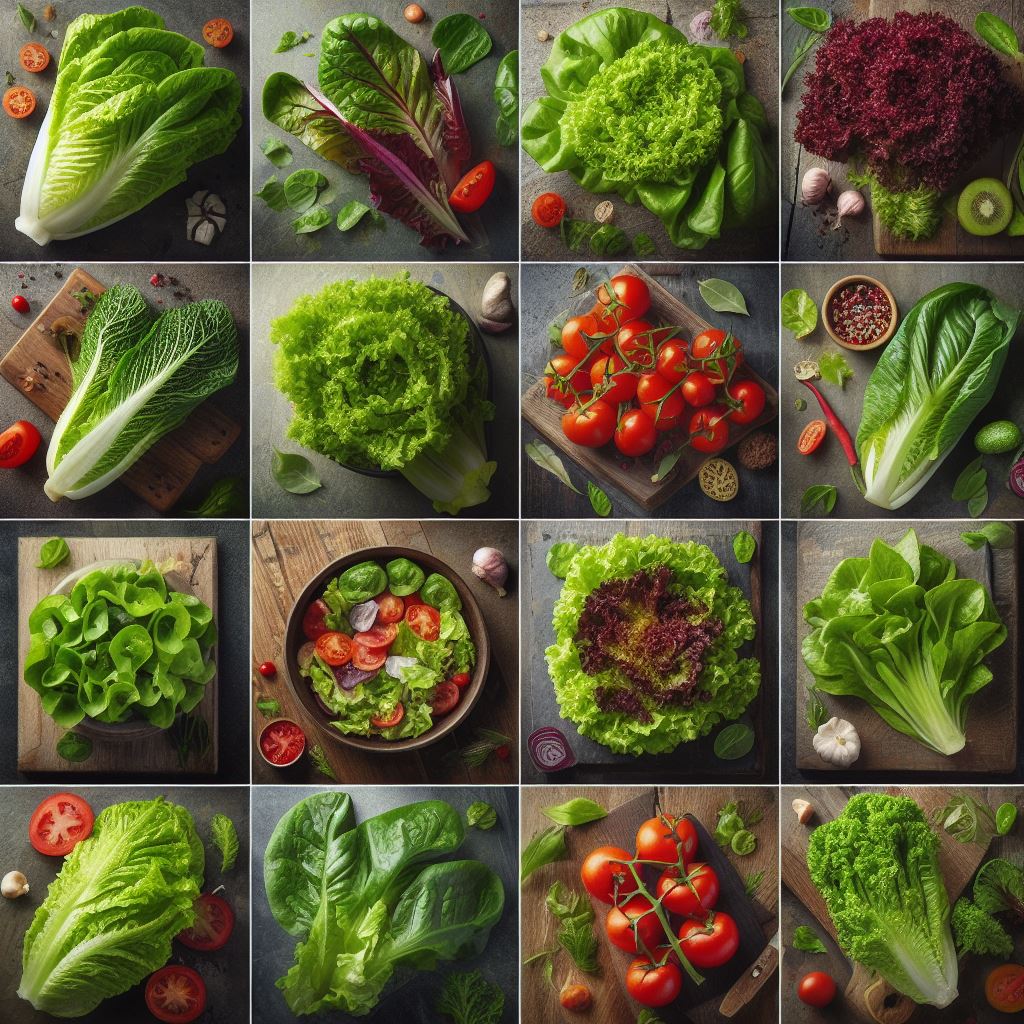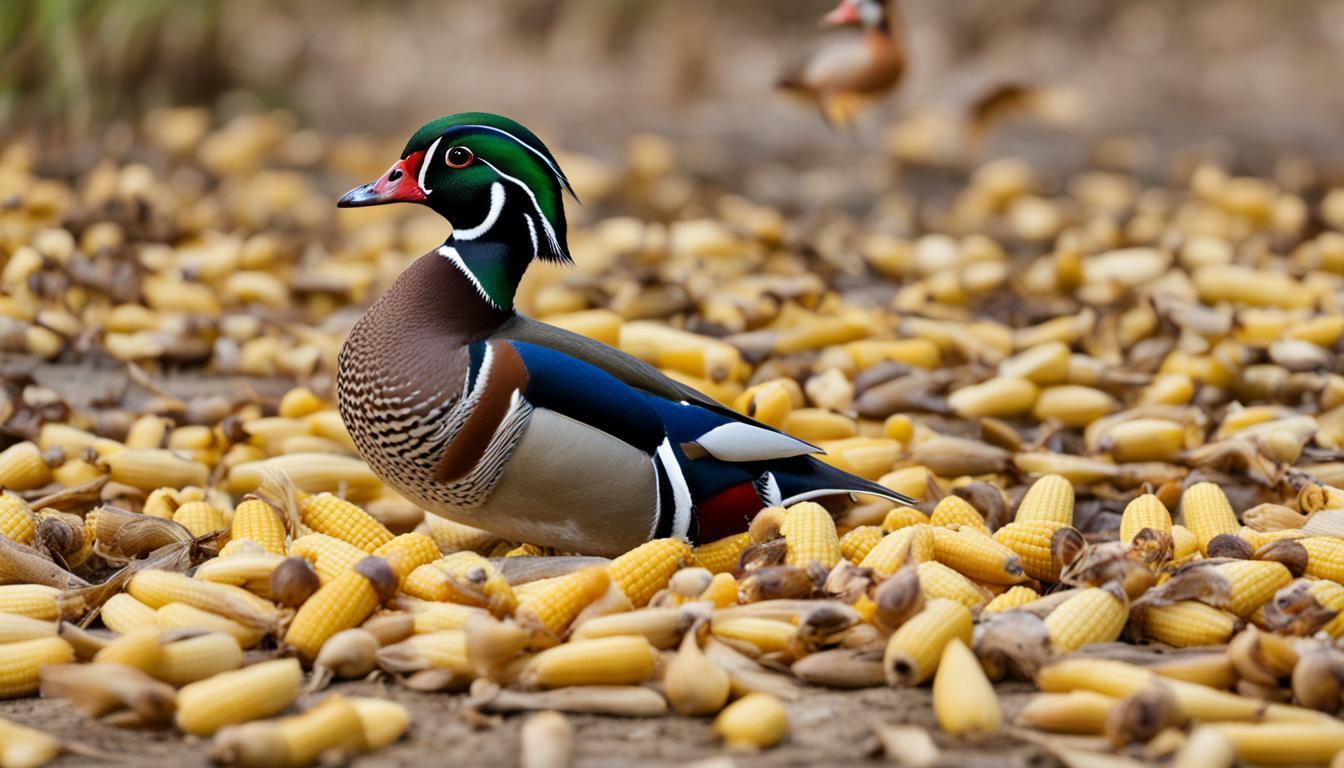Can Ducks Eat Romaine Lettuce? What Owners Should Know

Table of content:
Romaine lettuce is a very common variety of lettuce and a regular part of salads for us humans. But can ducks eat romaine lettuce as well? The short answer is yes, ducks can safely eat romaine lettuce in moderation as part of a varied diet.
Key Takeaways:
- Romaine lettuce is generally safe for ducks to eat in moderation as part of a balanced diet.
- Romaine lettuce provides ducks with nutrients like vitamins A, C, K, folate, and calcium.
- Only feed ducks washed romaine lettuce to avoid any pesticide residue. Chop or shred the lettuce into small bite-sized pieces.
- Limit romaine lettuce to occasional treats. Ducks’ main diet should consist of formulated duck feed and insects.
- Other leafy greens like kale, spinach, Swiss chard are also safe for ducks to eat.
- Avoid iceberg lettuce which has little nutritional value.
Romaine lettuce provides a good source of several key vitamins and minerals that are beneficial for duck health and nutrition. This lettuce has higher nutrient levels compared to iceberg lettuce. As with any human food offered to ducks, it should only be fed in limited quantities as a supplement to a duck’s main diet.
 Is Romaine Lettuce Safe for Ducks to Eat?
Is Romaine Lettuce Safe for Ducks to Eat?
Romaine lettuce is generally considered safe for ducks to eat. As an omnivore, ducks can eat both plant and animal materials. Lettuce and other leafy greens provide ducks with a source of vitamins, minerals, and fresh vegetation.
However, duck owners should take some precautions when feeding romaine lettuce:
- Wash the lettuce thoroughly – This removes any pesticide residues which can be dangerous to ducks. Be sure to pat the leaves dry before feeding to ducks.
- Chop the lettuce – Cut or shred into small bite-size pieces so ducks can easily and safely swallow the lettuce.
- Feed in moderation – Lettuce should only be an occasional treat, not a daily mainstay of a duck’s diet.
As long as these guidelines are followed, romaine lettuce can be a healthy component of a balanced diet for ducks. Most veterinarians and duck experts agree that occasional portions of lettuce are fine for ducks to eat.
What Kind of Lettuce Can Ducks Eat?
Ducks can eat most varieties of lettuce including:
- Romaine lettuce
- Green leaf lettuce
- Red leaf lettuce
- Oak leaf lettuce
- Butterhead lettuce
- Looseleaf lettuce
The main exception is iceberg lettuce which is very low in nutrients. Iceberg lettuce consists of mostly water and has minimal vitamin and mineral content. For that reason, it provides little health benefit for ducks.
More nutrient-dense lettuces like romaine, red leaf, and green leaf lettuce are better options for duck treats.
Here are some other leafy greens that make good duck treats:
- Kale
- Spinach
- Swiss chard
- Beet greens
- Turnip greens
- Collard greens
When selecting greens for ducks, choose lettuces and leafy greens that are brightly colored rather than pale. This often indicates a higher nutrient content.
 Benefits of Romaine Lettuce for Ducks
Benefits of Romaine Lettuce for Ducks
Feeding ducks romaine lettuce in moderation offers some benefits:
- Vitamin A – Romaine lettuce contains high levels of vitamin A in the form of beta carotene. This antioxidant helps support duck immune function and vision.
- Vitamin C – Romaine lettuce provides vitamin C, an antioxidant that promotes collagen formation and healthy bones.
- Vitamin K – Necessary for proper blood clotting, romaine lettuce is high in vitamin K.
- Folate – Important for red blood cell production, romaine lettuce contains generous amounts of folate.
- Calcium – Vital for bone health and eggshell formation, romaine lettuce delivers highly bioavailable calcium.
- Iron – This mineral supports oxygen transport and metabolism and is amply supplied by romaine lettuce.
- Fiber – The fiber in romaine gives ducks’ digestion a boost and helps maintain GI health.
- Water – The high water content in romaine lettuce helps ducks stay hydrated.
Beyond vitamins and minerals, romaine lettuce provides ducks with hydration and crisp, crunchy texture that encourages foraging behaviors.
| Nutrient | % Daily Value per 1 cup |
|---|---|
| Vitamin A | 174% |
| Vitamin C | 27% |
| Vitamin K | 221% |
| Folate | 64% |
| Calcium | 11% |
| Iron | 11% |
How Much Romaine Lettuce Can Ducks Eat?
Though romaine lettuce offers nutritional value, it should not be a mainstay of a duck’s diet. Lettuce alone does not meet all of a duck’s nutritional requirements.
Here are some tips on how much romaine lettuce to feed ducks:
- Limit lettuce to 10-15% of a duck’s overall food intake
- Feed romaine lettuce in moderation 2-3 times per week
- When feeding lettuce, reduce the amount of duck feed provided in that day’s meal
- One duck can eat approximately 1-2 cups chopped lettuce per feeding
The bulk of a duck’s diet should come from complete, balanced duck feed formulated to provide 100% of their nutritional needs. Pellets or crumbles should make up around 75-80% of their total food.
Ducks also need animal-based protein from sources like insects, worms, shrimp, minnows or larvae. These animal foods should comprise 15-20% of their diet.
Then leafy greens like romaine lettuce can be fed as supplemental treats a couple times a week.
Variety is important when feeding ducks produce like lettuce. Rotate between different leafy greens to provide a diverse mix of nutrients.
Feeding Ducks Romaine Lettuce Safely
When introducing any new food, it’s wise to start slowly to allow the duck’s digestive system to adjust. Here are some tips for safely feeding romaine lettuce:
- Wash the lettuce thoroughly and pat dry
- Remove any wilted or brown leaves
- Chop or shred the lettuce into bite-size pieces (1/2 inch)
- Place shredded lettuce in a heavy bowl filled with water – this prevents ducks from choking on loose pieces
- Start with a small portion (1/4 cup) and gradually increase over a week
- Closely monitor ducks the first few times to ensure they are tolerating it well
- Discard any uneaten lettuce within a few hours to prevent spoilage
If you ever observe signs of diarrhea, gastrointestinal upset or loss of appetite after feeding lettuce, discontinue and consult your avian veterinarian. This may indicate sensitivity or inability to digest portions that large.
For young ducklings, wait until they are fully feathered (around 6-8 weeks old) before introducing vegetables. Their digestive systems cannot handle greens until they mature.
Alternatives to Lettuce for Ducks
While ducks can eat lettuce, it is not a necessary part of their diet. Ducks’ nutritional needs can be met without any produce supplementation.
Here are some alternatives to lettuce and leafy greens:
- Formulated duck feed
- Chopped kale or collard greens
- Sprouts
- Chopped broccoli and cauliflower florets
- Thawed frozen peas and corn kernels
- Cooked sweet potatoes diced small
- Chopped fruits like grapes, berries, melons
Even if not feeding lettuce, variety is still important. Rotate between a selection of chopped fruits, vegetables, sprouts and greens a few times a week to provide nutritional diversity.
Greens are not mandatory for ducks to thrive, but small portions may enrich their eating experience.
Can Wild Ducks Eat Romaine Lettuce?
In the wild, ducks have a very diverse diet consisting of aquatic plants, seeds, insects, small fish and other aquatic invertebrates. Wild ducks do not naturally eat lettuce, as lettuce is a cultivated agricultural plant.
However, wild ducks that live near farms and residential areas often supplement their natural diet with handouts from people. This can include things like bread, crackers, bird seed and also produce like lettuce or greens. They happily accept and eat any treats they are offered.
While wild ducks will readily consume lettuce, it provides little nutritional value to them. Natural aquatic and plant foods suit their digestive systems better. If feeding wild ducks, you can offer small amounts of greens, but focus more on healthy options like:
- Chopped kale
- Swiss chard
- Spinach
- Chickweed
- Wild bird seed
- Chopped fruits
- Mealworms
- Chopped hard boiled egg
The bulk of a wild duck’s diet should come from their natural foraging of plants, seeds and insects in ponds and wetlands, not high-starch human foods.
Frequently Asked Questions
What kind of lettuce is best for ducks?
The most nutritious lettuce varieties for ducks include romaine, green leaf, red leaf, and oak leaf. Iceberg lettuce is low in nutrients so should be avoided.
Can I feed my ducks lettuce every day?
No, lettuce should only be fed a couple times per week in moderation. The bulk of a duck’s diet should come from duck pellets/crumbles.
Is spinach or kale better than lettuce for ducks?
Spinach and kale contain more nutrients than most lettuces, yes. But variety is always important, so rotating between different leafy greens is ideal.
Can too much lettuce hurt ducks?
If overfed, the high water content of lettuce can lead to diarrhea. Additionally, excess lettuce can fill up ducks leaving less room for more nutritious foods they need. Moderation is key.
Can baby ducks eat lettuce?
No, baby ducklings should not eat any greens until fully feathered, around 6-8 weeks old. Their young digestive systems can’t handle vegetation until more mature.
Do wild ducks eat lettuce?
Wild ducks don’t naturally eat lettuce, but they will readily accept it if offered to them by people. Though non-toxic, lettuce offers little nutrition to wild ducks. Their natural diet is more diverse.
Conclusion
In conclusion, romaine lettuce can be fed to ducks safely as an occasional supplemental treat. It provides nutrients like vitamins A, C, K and folate. Feed no more than 1-2 cups per duck, 2-3 times weekly.
Be sure to wash the lettuce thoroughly, remove any decayed parts, chop it small, and introduce it slowly to young or new ducks.
While lettuce can add variety, a nutritionally balanced duck diet should contain commercial duck feed, insects, and fresh drinking water. Keep lettuce to less than 15% of total food intake for optimal duck health.
Welcome. I’m Adreena Shanum, the proud owner of this website, and I am incredibly passionate about animals, especially poultry. I founded adreenapets.com as a labor of love, stemming from my desire to share my knowledge and experiences with poultry enthusiasts worldwide.




